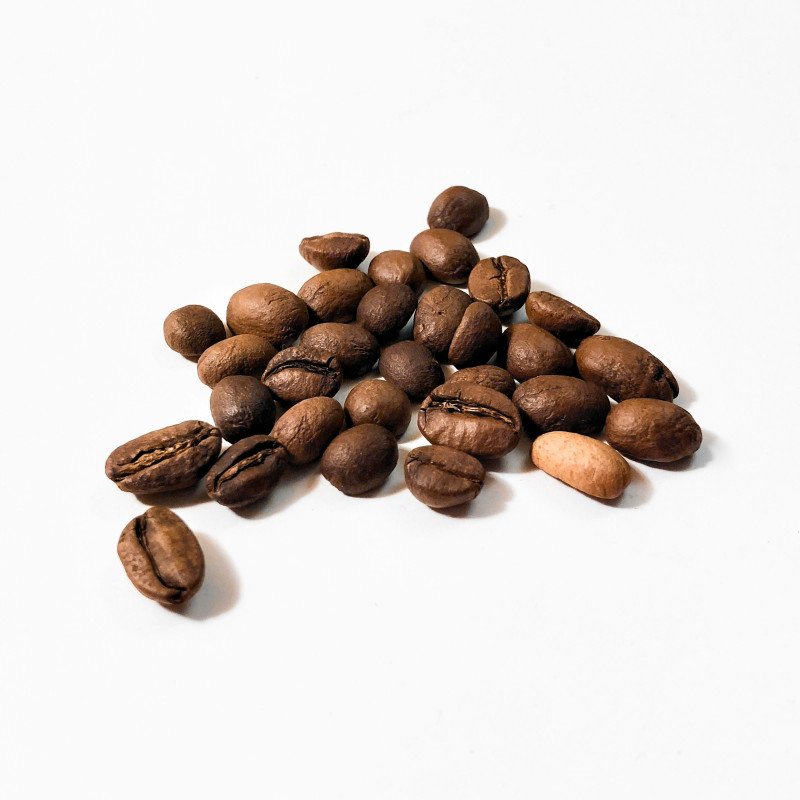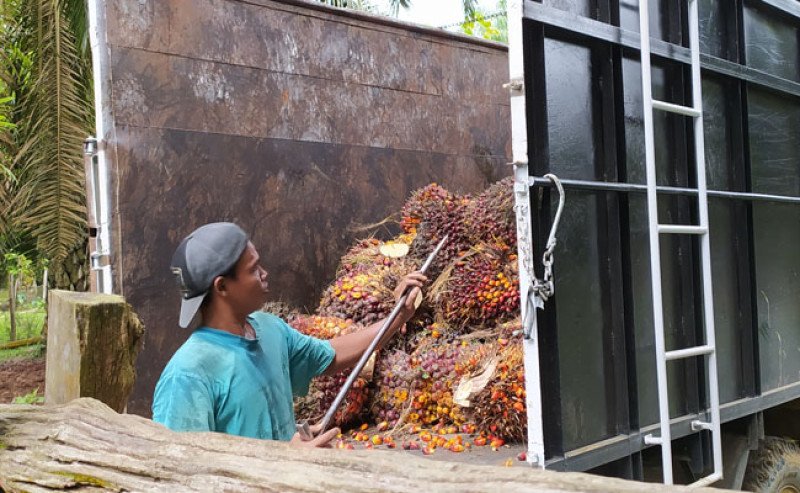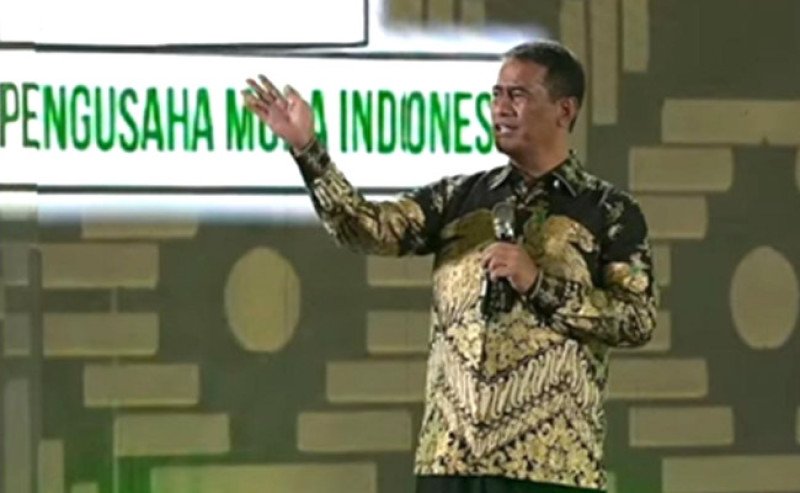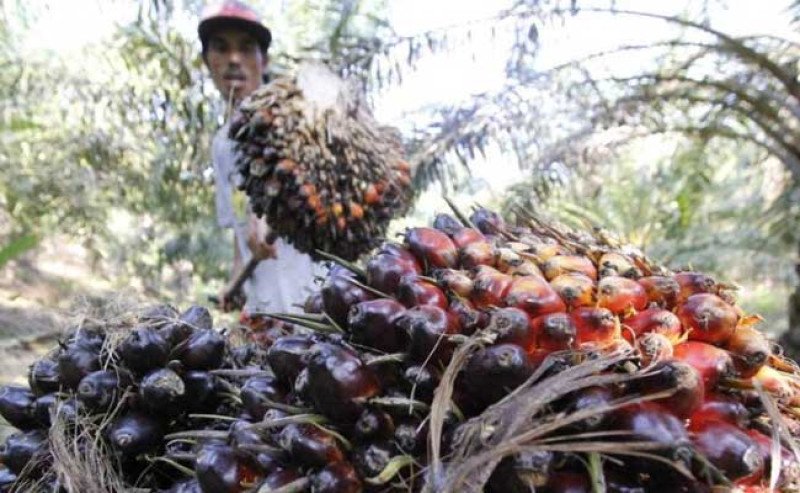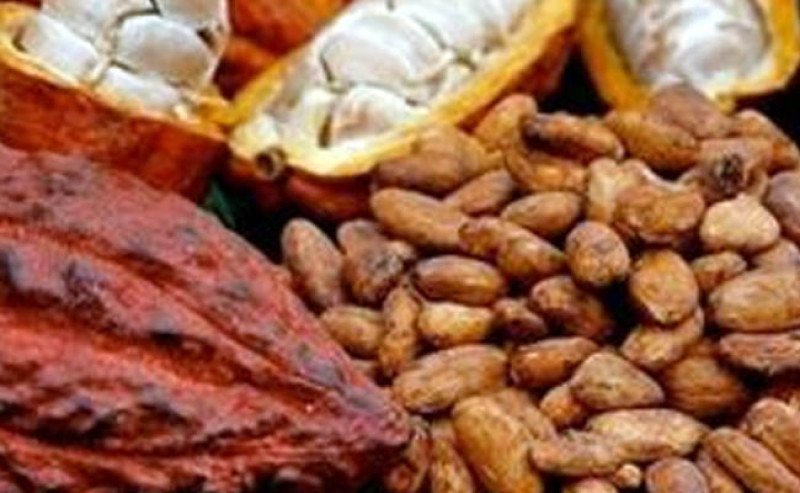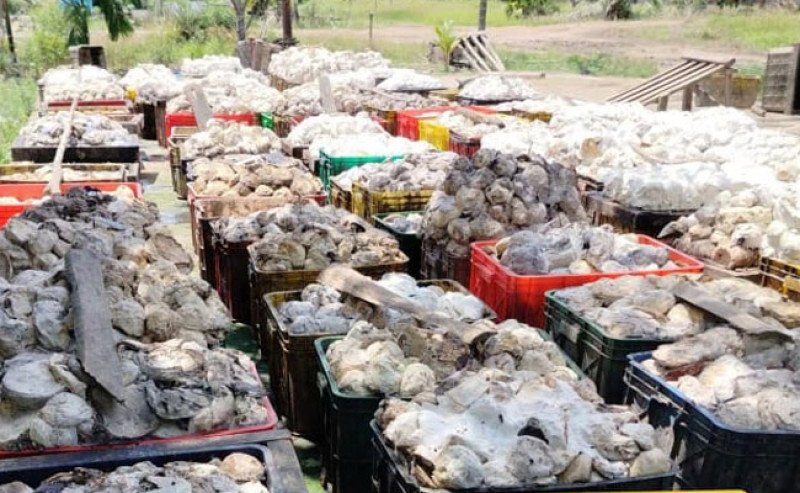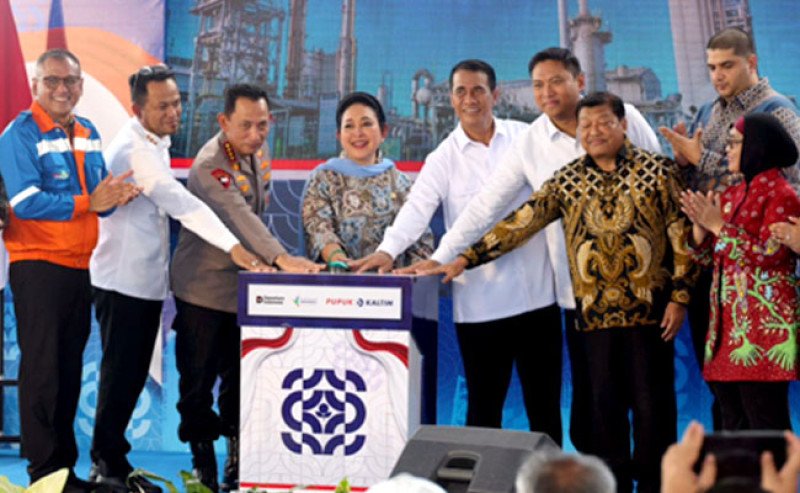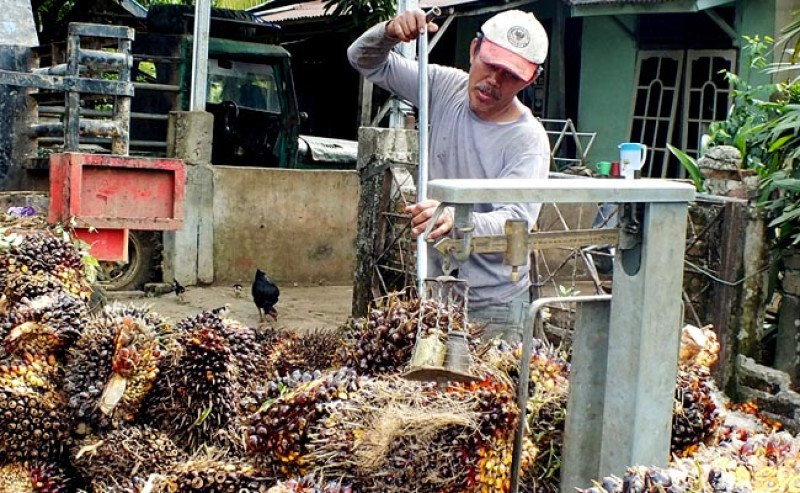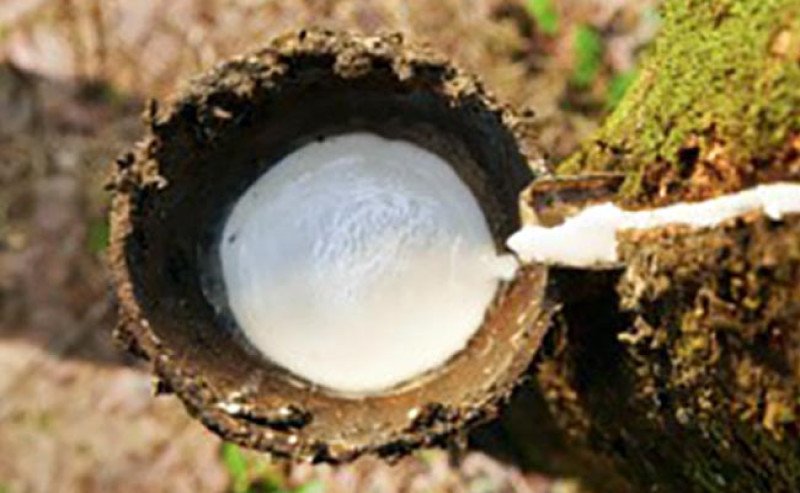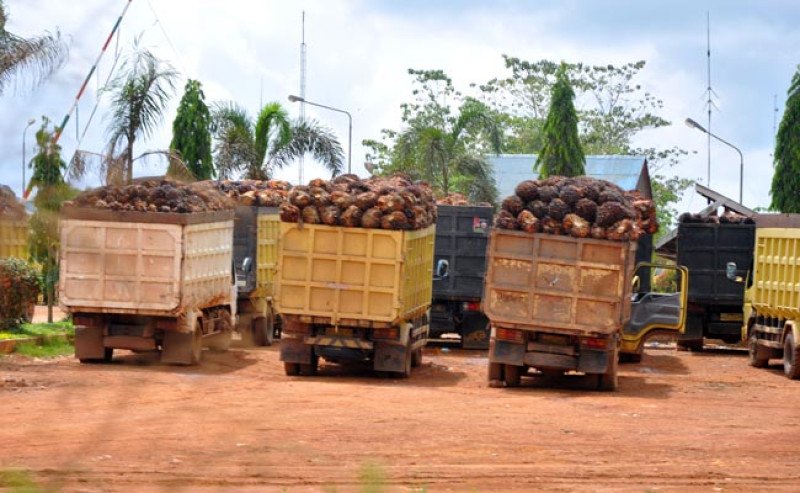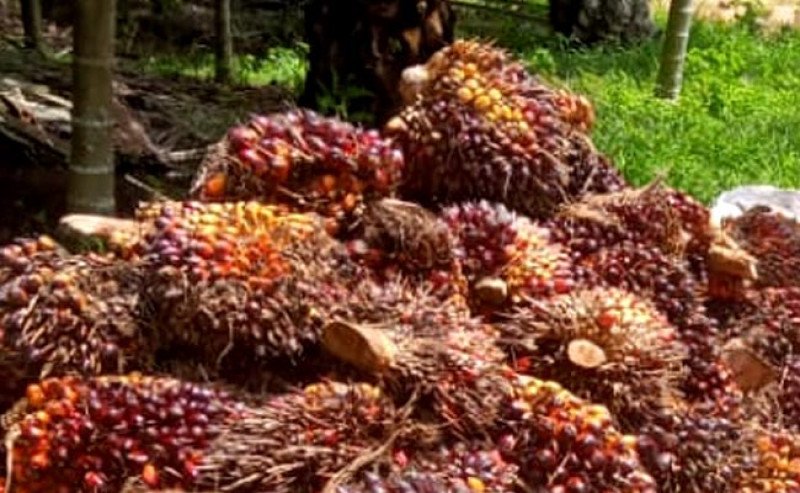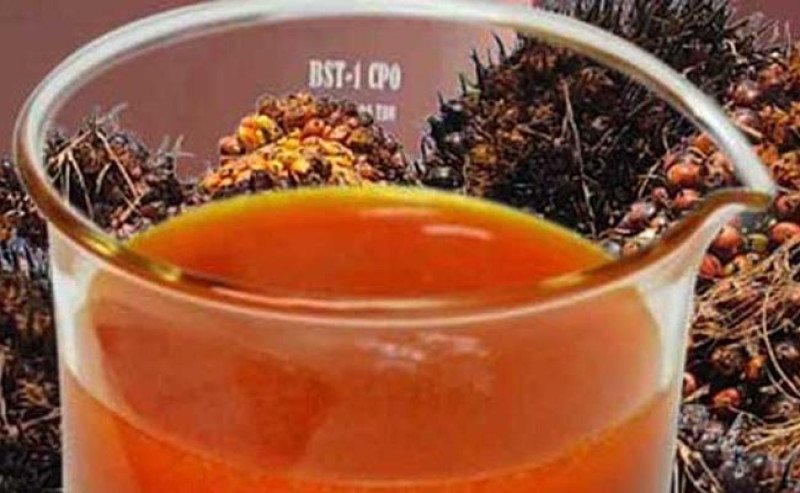Agricom.id, JAKARTA - When land use changes from productive areas to be housing and industrial areas massively take place in Java, the farmers in Abung Surakarta, District of North Lampung, Lampung Province give the good news.
They are planting and developing gogo paddy in the dry areas, namely in the former rubber and palm oil plantations. In one sub district, based on Plantation Agency Branch Abung Surakarta, in 2020, at least paddy gogo is planted in 107 hectares of dry areas, 50 hectares of the numbers are in the conversion areas of palm oil and rubber. This happens for the price of palm oil and rubber was cheap.
Head of Agriculture Agency Branch, Abung Surakarta, Wardoyo said that the farmers in the region have planted gogo paddy since two years ago.
When the price of rubber, palm oil, and cassava was not economic, he thought that the farmers plant gogo paddy as the good opportunity. “Alhamdulillah, there are lots of good results, the productivity reaches 8 - 9 tons in average though it is planted in the dry areas,” Wardoyo said in Lampung, Tuesday (3/11/2020) as in the official statement to InfoSAWIT.
When there was a local meeting with the team of Balai Penyuluhan Pertanian (BPP) of Komando Strategis Pertanian (Kostratani) from Balai Pelatihan Pertanian (Bapeltan) Lampung in the recent days, Wardoyo said that the result was from 'trial and error' that the counselors and the farmers did within the supports of Proteksi Tanaman Pangan dan Hortikutura Laboratory, Horticulture and Food Plantation Agency, Lampung Province in District of North Lampung.
“The technologies which supported the success are the planting of hybrid seeds, the natural fertilizer, and integrated pest observation. We want to produce the environmental paddy,” he said.
Head of Bapeltan Lampung, Abdul Roni Angkat said that the success of planting gogo paddy in the dry areas and more farmers planting it, convinced that the rice self-sufficiency would be realized without expanding new paddy fields or developing dam or irrigation which spend lots of investment provided by the government.
“Balai Pelatihan Pertanian Lampung would fully support to develop the human resource and technology development to gogo paddy so that the application would be used by many, namely in District of North Lampung and in the regions where Bapeltan operates, such as, Lampung, Bengkulu, South Sumatera, and Kepulauan Bangka Belitung,” Abdul Roni said.
In other place, General Director of Food Plantation, Ministry of Agriculture, Suwandi said that Minister of Agriculture, Syahrul Yasin Limpo has the strategic ways to secure the food production nationally, such as, planting gogo paddy in the dry areas and facing the dry season.
“Ministry of agriculture also distributed the helps, such as, agricultural tools, shallow well, and water pump so that the water for irrigation in the dry areas is available. Besides, the farmers were helped by providing kredit usaha rakyat and agricultural insurance in order to make them helped in modal and if they fail the harvest,” he said.
He also mentioned that the gogo paddy planting in the dry land is one breakthrough to strengthen the production and rice procurement in 2020. Data from central bureau of statistic revealed that the rice production in 2020 reached 31,63 million tons or increased 1,00% compared to the previous year which reached 31,31 million tons.
"Just like Minister of Agriculture, Syahrul Yasin Limpo told, we have to be in the fields, not only to monitor but also directly and quickly make sure what to do if there is area which is not cultivated or planted still,” he said. (A2)


